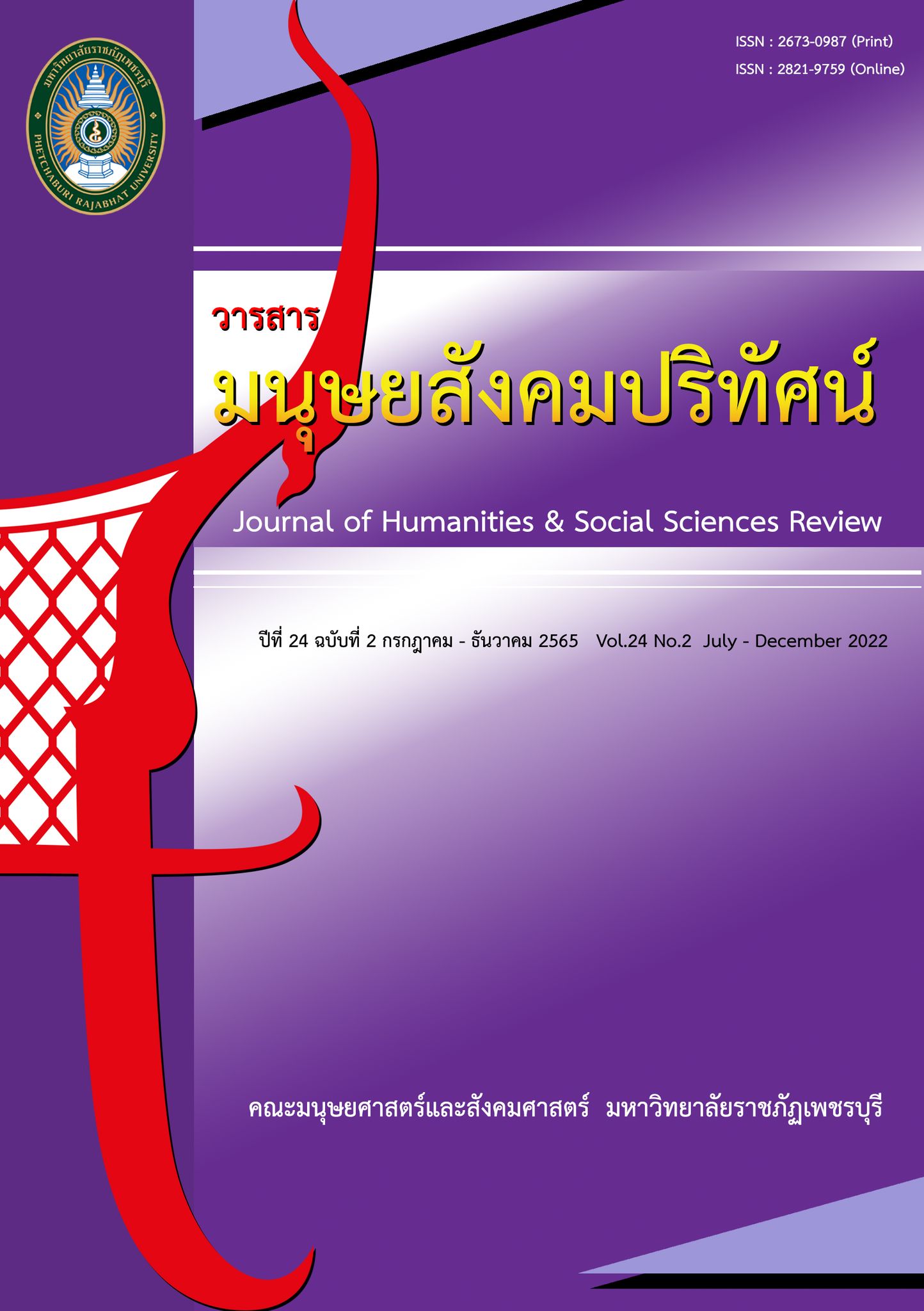การพัฒนาหลักสูตรท้องถิ่น เรื่องการทำปุ๋ยอินทรีย์โดยใช้แนวคิดหลักปรัชญาของเศรษฐกิจพอเพียงร่วมกับการเรียนรู้เชิงประสบการณ์ เพื่อพัฒนาความสามารถในการทำงาน ของนักเรียนชั้นมัธยมศึกษาปีที่ 3 โรงเรียนป่าเด็งวิทยา
Main Article Content
บทคัดย่อ
วิจัยเรื่องนี้มีวัตถุประสงค์เพื่อ 1) ศึกษาข้อมูลพื้นฐานเกี่ยวกับการพัฒนาหลักสูตรท้องถิ่น เรื่องการทำปุ๋ยอินทรีย์โดยใช้แนวคิดหลักปรัชญาของเศรษฐกิจพอเพียงร่วมกับการเรียนรู้เชิงประสบการณ์ เพื่อพัฒนาความสามารถในการทำงานของนักเรียนชั้นมัธยมศึกษาปีที่ 3 2) พัฒนาหลักสูตรท้องถิ่น เรื่องการทำปุ๋ยอินทรีย์ 3) ทดลองใช้หลักสูตรท้องถิ่น เรื่องการทำปุ๋ยอินทรีย์ และ 4) ประเมินและปรับปรุงหลักสูตรท้องถิ่น เรื่องการทำปุ๋ยอินทรีย์ เป็นการวิจัยและพัฒนา กลุ่มตัวอย่าง ได้แก่ นักเรียนชั้นมัธยมศึกษาปีที่ 3/2 โรงเรียนป่าเด็งวิทยา จำนวน 30 คน ใช้วิธีการสุ่มอย่างง่ายโดยการจับสลาก เครื่องมือที่ใช้ในการวิจัย ได้แก่ 1) หลักสูตรท้องถิ่น เรื่องการทำปุ๋ยอินทรีย์ 2) แบบสอบถามความต้องการของนักเรียน 3) แบบสัมภาษณ์ 4) ประเด็นการสนทนากลุ่ม 5) แบบทดสอบ เรื่องการทำปุ๋ยอินทรีย์ จำนวน 30 ข้อ 6) แบบประเมินทักษะการทำปุ๋ยอินทรีย์ 7) แบบประเมินความสามารถในการทำงาน และ 8) แบบประเมินความพึงพอใจที่มีต่อหลักสูตรท้องถิ่น สถิติที่ใช้ในการวิเคราะห์ข้อมูล ได้แก่ ค่าเฉลี่ย ส่วนเบี่ยงเบนมาตรฐาน การทดสอบที และการวิเคราะห์เนื้อหา ผลการวิจัยพบว่า 1) นักเรียนและผู้เกี่ยวข้องเห็นความสำคัญและต้องการให้มีการพัฒนาหลักสูตรท้องถิ่น เรื่องการทำปุ๋ยอินทรีย์ 2) หลักสูตรท้องถิ่น เรื่องการทำปุ๋ยอินทรีย์ ประกอบด้วย แนวคิด หลักการ จุดมุ่งหมาย ผลการเรียนรู้ คำอธิบายรายวิชา โครงสร้างรายวิชา/เวลาเรียน สาระการเรียนรู้ แนวทางการจัดการเรียนรู้ สื่อการเรียนรู้ การวัดและประเมินผล 3) นักเรียนได้เรียนรู้และลงมือปฏิบัติการทำปุ๋ยอินทรีย์ ผ่านกระบวนการวิเคราะห์งาน มีการวางแผนในการทำงานร่วมกัน ลงมือปฏิบัติงานตามแผนที่วางไว้ และประเมินผลงานที่ทำ 4) นักเรียนมีผลการเรียนรู้ เรื่องการทำปุ๋ยอินทรีย์หลังการใช้หลักสูตรสูงกว่าก่อนการใช้หลักสูตร อย่างมีนัยสำคัญทางสถิติที่ระดับ 0.05 มีทักษะการทำปุ๋ยอินทรีย์อยู่ในระดับทักษะมาก มีความสามารถในการทำงานอยู่ในระดับมากที่สุด และมีความพึงพอใจต่อหลักสูตรท้องถิ่นอยู่ในระดับมากที่สุด
Article Details
1. มุมมองและความคิดเห็นใด ๆ ในบทความเป็นมุมมองของผู้เขียน คณะบรรณาธิการไม่จำเป็นต้องเห็นด้วยกับมุมมองเหล่านั้นและไม่ถือเป็นความรับผิดชอบของคณะบรรณาธิการ ในกรณีที่มีการฟ้องร้องเกี่ยวกับการละเมิดลิขสิทธิ์ ให้ถือเป็นความรับผิดชอบของผู้เขียน แต่เพียงผู้เดียว
2. ลิขสิทธิ์บทความที่เป็นของคณะมนุษยศาสตร์และสังคมศาสตร์ มหาวิทยาลัยราชภัฏเพชรบุรีมีลิขสิทธิ์ถูกต้องตามกฎหมาย การเผยแพร่จะต้องได้รับอนุญาตโดยตรงจากผู้เขียนและมหาวิทยาลัยราชภัฏเพชรบุรีเป็นลายลักษณ์อักษร
เอกสารอ้างอิง
กระทรวงศึกษาธิการ. (2553). หลักสูตรแกนกลางการศึกษาขั้นพื้นฐาน พุทธศักราช 2551. กรุงเทพฯ: โรงพิมพ์ชุมนุมสหกรณ์การเกษตรแห่งประเทศไทย.
จริยา ศรีเพชร. (2550). การพัฒนาหลักสูตรสถานศึกษาเรื่อง คลองมหาสวัสดิ์ สำหรับนักเรียนชั้นประถมศึกษาปีที่ 6. นครปฐม: มหาวิทยาลัยศิลปากร.
ทิศนา แขมมณี. (2559). ถอดรหัสปรัชญาของเศรษฐกิจพอเพียงสู่การสอนกระบวนการคิด. กรุงเทพฯ: สำนักพิมพ์แห่งจุฬาลงกรณ์มหาวิทยาลัย.
ทิศนา แขมมณี. (2561). ศาสตร์การสอน องค์ความรู้เพื่อการจัดกระบวนการเรียนรู้ที่มีประสิทธิภาพ. กรุงเทพฯ: สำนักพิมพ์แห่งจุฬาลงกรณ์มหาวิทยาลัย.
ปีย์วรา คล้ายหนองสรวง. (2550). การพัฒนาหลักสูตรสถานศึกษาเรื่อง ชุมชนเสลภูมิ สำหรับนักเรียนชั้นประถมศึกษาปีที่ 3. นครปฐม: มหาวิทยาลัยศิลปากร.
พระราชบัญญัติการศึกษาแห่งชาติ พ.ศ. 2542. (2542). ราชกิจจานุเบกษา เล่ม 116. สืบค้นเมื่อ 21 มิถุนายน 2563, จาก http:://www.ratchakitcha.soc.go.th/DATA/PDF/2542/A/074/1.PDF.
เพ็ญแข ศิริวรรณ และคณะ. (2551). สถิติเพื่อการวิจัย. กรุงเทพฯ: เท็กซ์ แอนด์ เจอร์นัลพับลิเคชั่น
มาเรียม นิลพันธุ์. (2547). วิธีวิจัยทางพฤติกรรมศาสตร์และสังคมศาสตร์. นครปฐม: มหาวิทยาลัยศิลปากร.
วาโร เพ็งสวัสดิ์. (2551). วิธีวิทยาการวิจัย. กรุงเทพฯ: สุวีริยาสาส์น.
สำนักงานคณะกรรมการการศึกษาขั้นพื้นฐาน. (2552). แนวปฏิบัติการวัดและประเมินผลการเรียนรู้ตามหลักสูตรแกนกลางการศึกษาขั้นพื้นฐาน พุทธศักราช 2551. กรุงเทพฯ: โรงพิมพ์ชุมนุมสหกรณ์การเกษตรแห่งประเทศไทย.
สำนักงานคณะกรรมการพิเศษเพื่อประสานงานโครงการอันเนื่องมาจากพระราชดำริ (สำนักงาน กปร.). (2550). เศรษฐกิจพอเพียงปรัชญาชี้ถึงแนวทางการดำรงชีวิต. กรุงเทพฯ: โรงพิมพ์โรงเรียนนายร้อยพระจุลจอมเกล้า.


